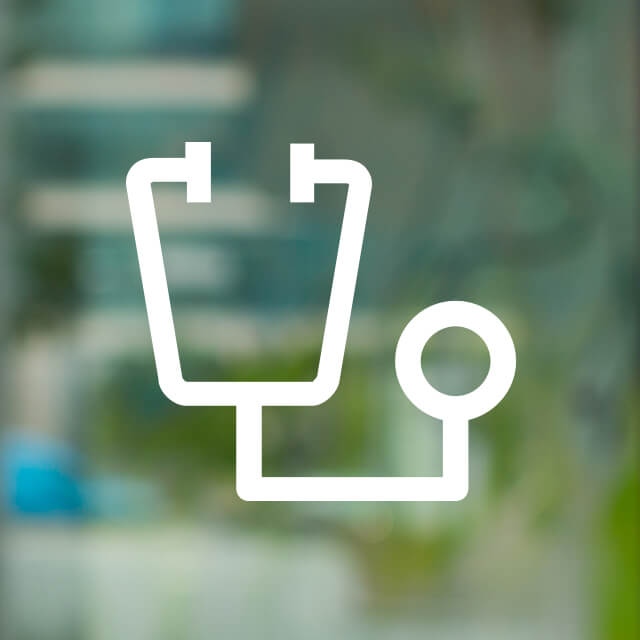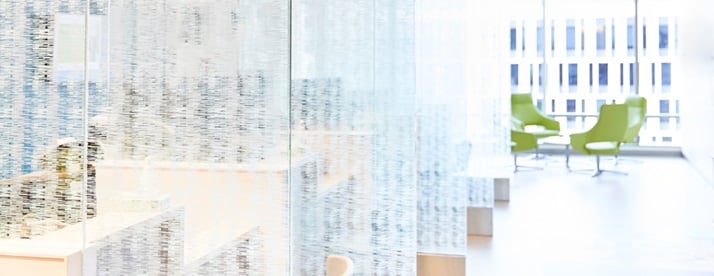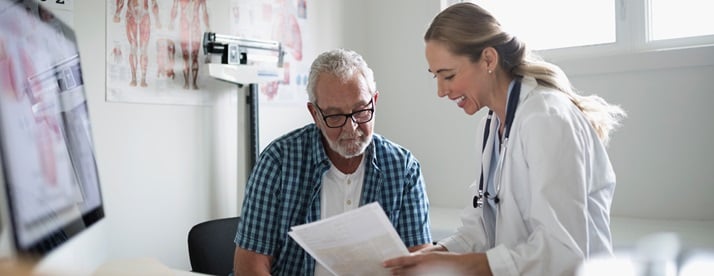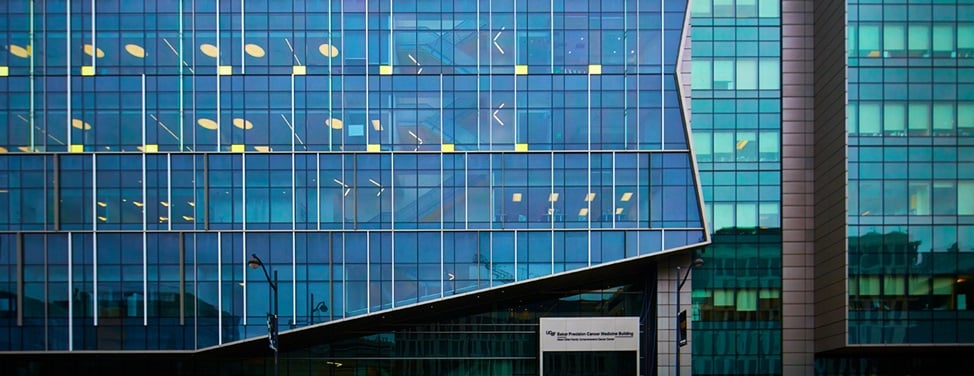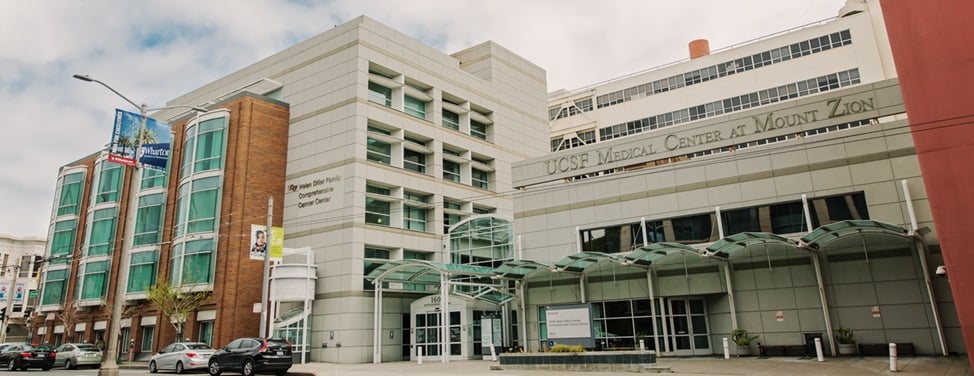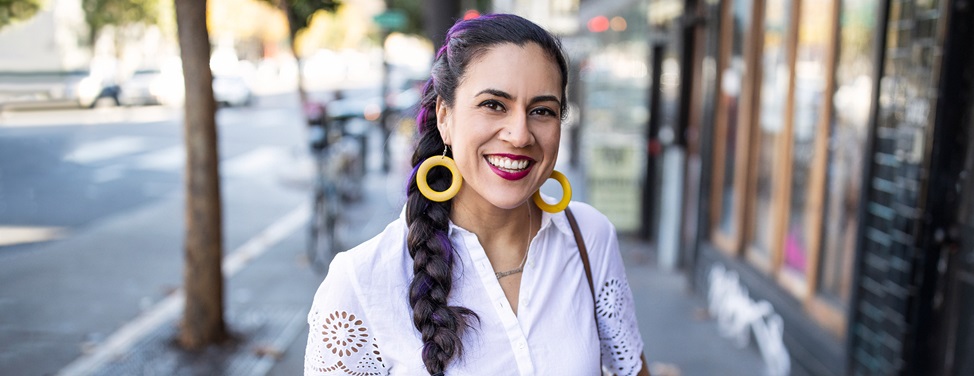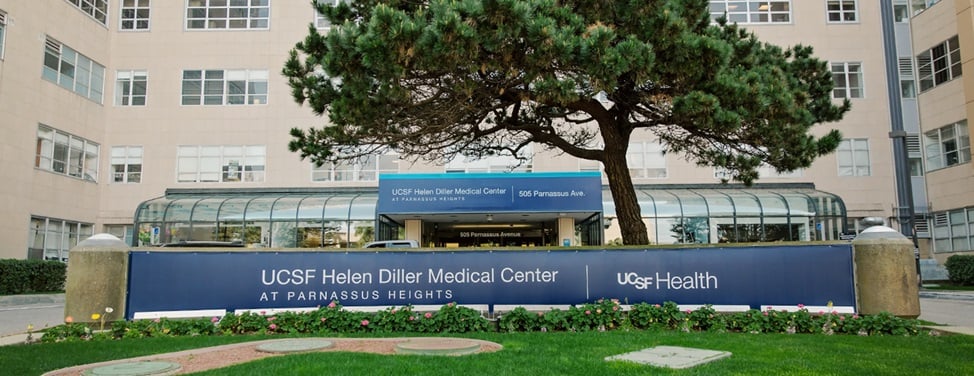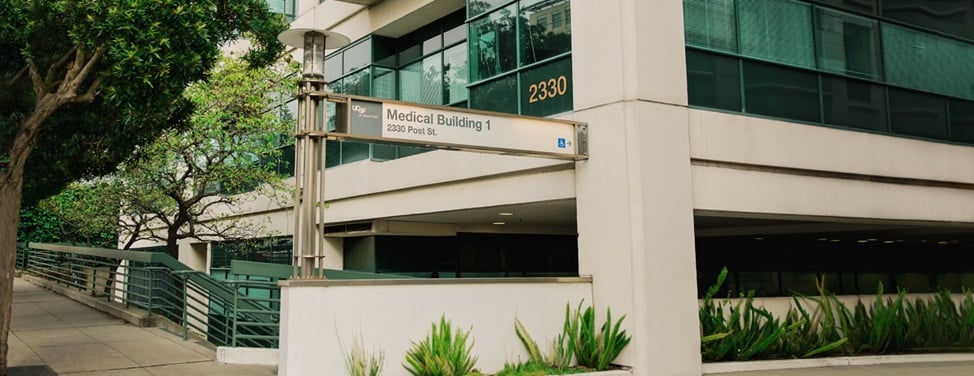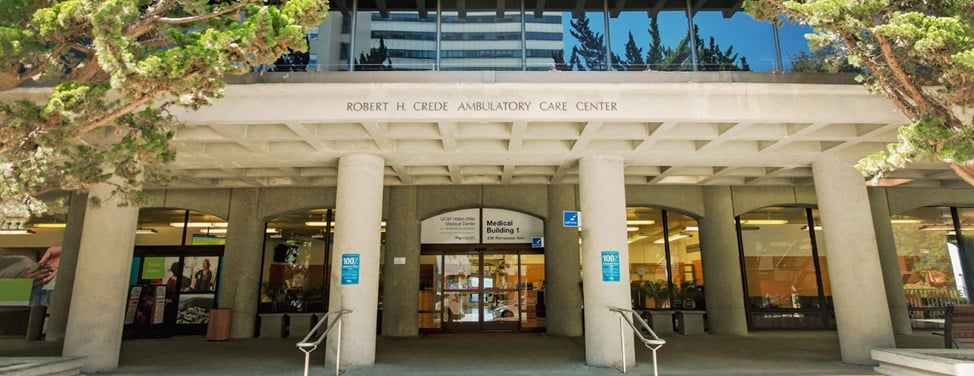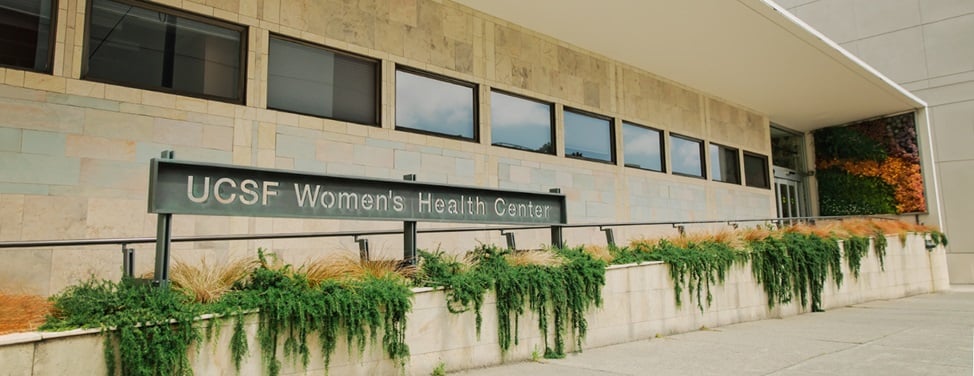
Radiology at China Basin
UCSF Radiology at China Basin offers a variety of medical imaging tests and treatments. We use state-of-the-art equipment that yields the best possible image quality while minimizing our patients' exposure to radiation.
Services at this location include:
- CT scan
- MRI
- Nuclear medicine
- PET/MRI
- PET/CT
- Imaging services for heart and spine conditions and cancer
Parking
The UCSF Imaging Center at China Basin offers validation for patients parking in the underground garage at 920 Third Street.
Parking in the garage costs $6 per 20 minutes and the maximum daily parking fee is $38. The validation covers $16 worth of parking fees, equivalent to 53 minutes of parking. If your appointment is longer, you will pay $6 per 20 minutes up to a maximum of $22.
When you check in at the front desk for your appointment, please ask a staff member to validate your parking ticket.
We also offer valet service, which may be helpful for some patients with disabilities. See the parking garage attendant for valet assistance.
Images and reports
Getting your results
A radiologist will review your images and write a report. When finalized, the report and your images will be available in MyChart, UCSF's secure online portal for patients. You can access this report as soon as this occurs, so you may see it before your referring doctor does. Learn more about receiving test results and medical reports in MyChart. If you have questions about a report, please contact your referring doctor.
To get a CD of your medical images and reports, send a request to the UCSF Imaging Library.
Sending images to UCSF
If you need to send medical images that were taken at another institution to your UCSF radiologist, you can do so through our secure online portal. For instructions, visit How to Send Radiology Images to UCSF.
Doctor referral required
Our locations (1)
Our team
Clinical trials
Low PSMA SUV Boost (LPS-Boost): Intensified 177Lu-PSMA-617 Treatment for Patients With Metastat...
PSA progression is defined as a rise in PSA at > 12 weeks by more than 25% and more than 2ng/mL above the nadir (lowest PSA point). Time-to-event endpoints will be analyzed graphically and numerically using the Kaplan-Meier method...
Recruiting
18F-Fluorocholine Positron Emission Tomography (PET) for the Detection of Parathyroid Adenomas
Sensitivity of 18F-fluorocholine PET for the detection of abnormal parathyroid adenomas confirmed by pathology as compared to sestamibi imaging. Location of parathyroid adenoma at imaging as read by three blinded readers, will be ...
Recruiting
Imaging Study of [89Zr]DFO-YS5 for Detecting CD46 Positive Malignancy in Multiple Myeloma
Defined as the rate of lesions with positive uptake when compared against 18F-fluorodeoxyglucose (FDG) PET/computed tomography (CT) positivity. Sensitivity estimated based on lesion level without considering the location of the le...
Recruiting
Focused Ultrasound to Promote Immune Responses for Undifferentiated Pleomorphic Sarcoma
Proportion of participants with device-related adverse events will be determined by evaluating the incidence and severity of any device-related complications from the treatment day visit through the time of surgery or last post-tr...
Recruiting
Support services
Plan your visit
What to Bring
- Photo I.D.
- Health insurance card
- List of your medications, including dosages
- List of questions you may have
- Device or paper for taking notes
How to send radiology images to UCSF
Before your appointment, securely upload images for our radiologists to review.
Accessing your test results in MyChart
Find out how to access your test results and medical reports.
Related clinics
Our research initiatives
-
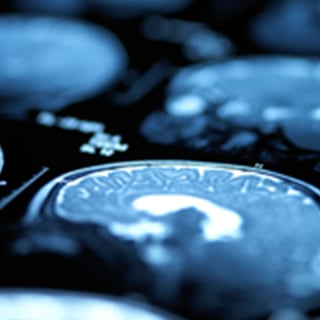
UCSF Department of Radiology and Biomedical Imaging Research
The UCSF Department of Radiology and Biomedical Imaging is home to many state-of-the-art research labs, all working to use imaging technologies to improve the understanding, diagnosis and treatment of disease.















